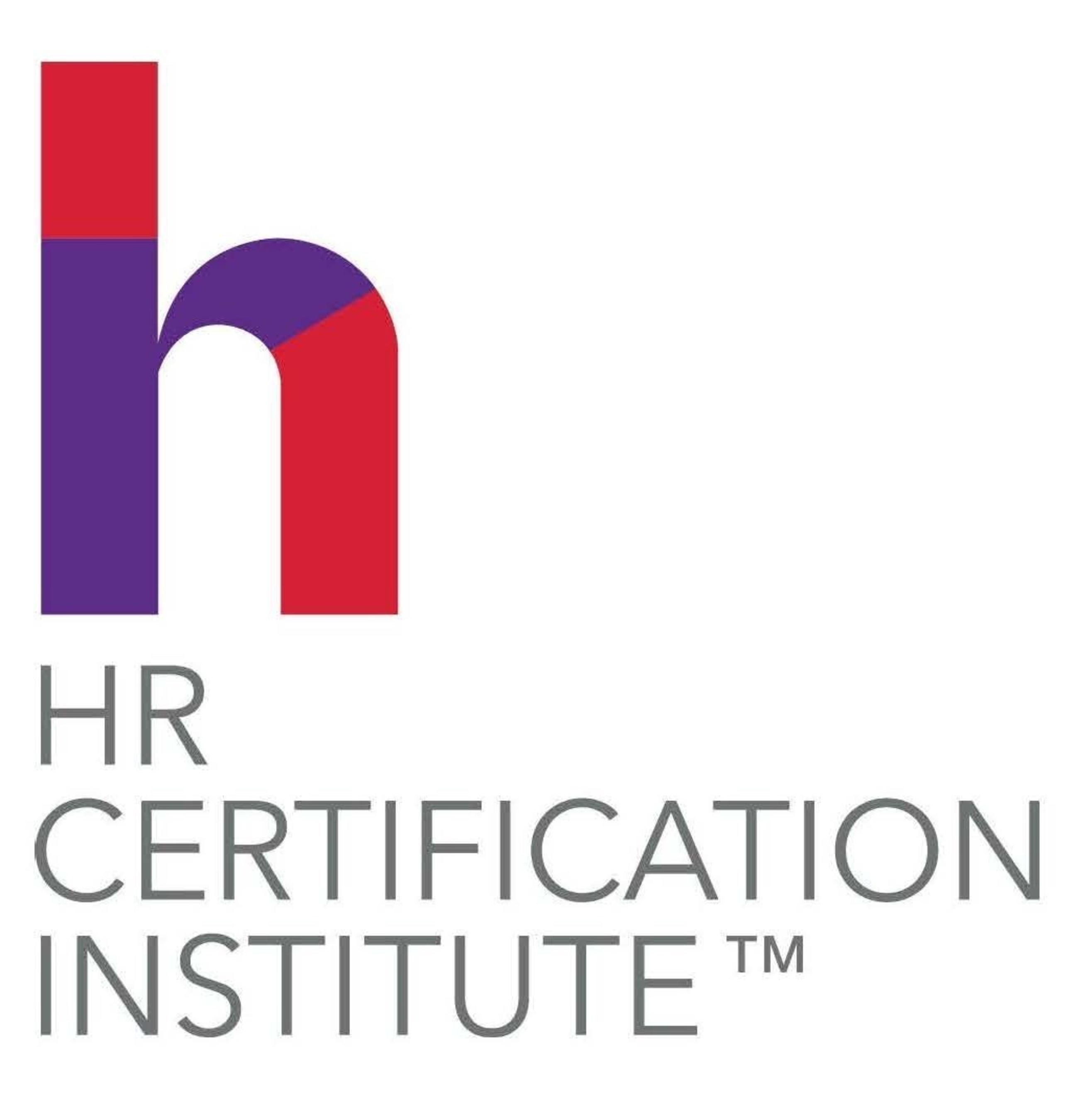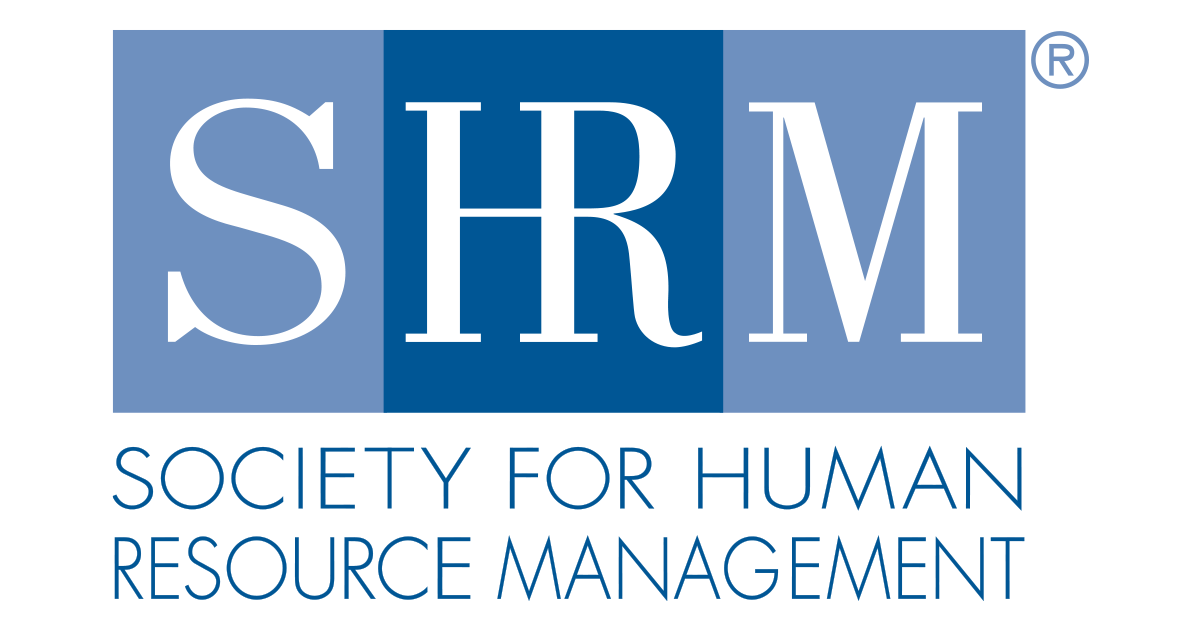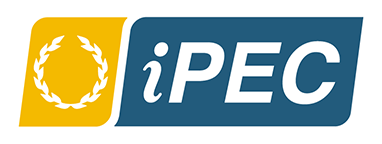HR Certifications: How They Impact Pay and Career Trajectory
2018 U.S. Edition
Introduction
In 2018, there’s a myriad of credentials that HR professionals could pursue. Yet, we have not seen any research or hard data to help HR pros determine which particular HR credentials are worth pursuing. For example, what specific skills and competencies can one expect to gain from each certification? Which one will give HR pros the greatest pay boost? How do certifications impact one’s career trajectory and ability to move into management and leadership positions?
To find the answers, PayScale collected salary and demographic information from over 102,000 respondents who completed our online salary survey. These respondents have HR job titles and 34 percent reported that they have at least one HR certification. We analyzed the impact of various HR certifications on compensation and career trajectory for HR professionals in the U.S..
For this study, we evaluated 10 distinct certifications from four HR membership organizations including SHRM, HRCI, World at Work and the Institute for Professional Excellence in Coaching.
To determine the impact certifications have on compensation and career advancement for HR pros in the U.S., we looked at the dataset through a number of lenses. First, we built a statistical model to estimate the pay boost one can expect from having a particular HR credential, while controlling for other factors that impact compensation such as job title, industry and location.
In addition, we evaluated the median pay for HR pros with and without certifications, the percent pay boost of having a certificate by metropolitan areas and by industry. Also, we examined how much compensation grew for certification holders over the last decade. Last but not least, we looked at the promotion velocity for those with certificates vs. those without.
We found that for the most part, having an HR credential is beneficial from a pay perspective and a career advancement perspective.
Below, we present the key findings.
Types of HR certifications

HRCI
HRCI – The HR Certification Institute – has been offering certifications for over 40 years. It’s well recognized in the HR community: More than 500,000 HR professionals in more than 100 countries have earned certifications from HRCI. HRCI offers several types of certificates:
- The Professional in Human Resources (PHR)
- Senior Professional in Human Resources (SPHR)
- Associate Professional in Human Resources (aPHR)
- California Professional in Human Resources (PHRca), just for those practicing HR in California
- California Senior Professional in Human Resources (SPHR-CA), just for those practicing HR in California
- Global Professional in Human Resources (GPHR)

SHRM
SHRM – The Society for Human Resource Management – is the largest HR membership organization focused on professional development. It has supported more than 100,000 employers representing 140 million employees worldwide.
In 2014, SHRM launched a new, “competency-based’ certification program for HR professionals to give them another option for learning and professional development. According to SHRM’s website, the program provides practitioners with “job-relevant’ knowledge, and skills that are transferable across industries, geographic borders, job responsibilities and career levels. Certifications are also “focused on advancement’, “strategic”, accredited by the Buros Center for Testing, and backed by SHRM, the world’s largest HR membership organization.
SHRM offers just two types of certifications:
-
SHRM Certified Professional (SHRM-CP)
-
SHRM Senior Certified Professional (SHRM -SCP)
When SHRM initially rolled out their own certificates, they allowed existing HRCI certification holders to map their old certifications over to the new SHRM option.

World at Work
World at Work is the leading nonprofit professional association in compensation and total rewards. They provide professional development for those who design and deliver total rewards programs. World at Work’s most popular credential is the Certified Compensation Professional (CCP).

Institute for Professional Excellence in Coaching (iPEC)
The iPEC is one of the largest ICF-accredited coaching training schools in the world, it has helped over 15,000 graduates launch careers as Certified Professional Coaches. It offers the Certified Professional Coach (CPC) credential.
Who’s Getting Certifications?
In 2018, we found that 34.2 percent of all HR professionals have at least one HR credential.
The prevalence of this certification have steadily declined from 2008 to 2014, but it’s then picked up in the last 4 years. A big part of this has to do with SHRM, which started to offer its own certifications (the SHRM-CP and SHRM-SCP) in 2015.
% Of HR Professionals With At Least One Certification
Which Certificates Are Most Prevalent in 2018?
HRCI certifications are most prevalent in 2018. In fact, 30.4 percent of HR professionals in our dataset have at least one certification from HRCI. This makes sense, as HRCI has been offering HR certifications for over 40 years.
|
Certifications |
% of HR Pros |
|
Has at least one certification |
36.4% |
|
Professional in Human Resources (PHR) |
16.9% |
|
SHRM Certified Professional (SHRM-CP) |
15.4% |
|
Senior Professional in Human Resources (SPHR) |
7.9% |
|
SHRM Senior Certified Professional (SHRM-SCP) |
5.3% |
|
Associate Professional in Human Resources (aPHR) |
0.7% |
|
Global Professional in Human Resources (GPHR) |
0.3% |
|
Certified Compensation Professional (CCP) |
0.2% |
|
California Senior Professional in Human Resources (SPHR-CA) |
0.1% |
|
California Professional in Human Resources (PHR-CA) |
0.1% |
|
Certified Professional Coach (CPC) |
0.1% |
The most popular credential to get from the HRCI is the Professional in Human Resources (PHR) certification; 16.9 percent of HR professionals who responded to our survey in 2018 said they have this certification.
The second most popular credential is SHRM’s Certified Professional certificate (SHRM-CP); 15.4 percent of all HR professionals who responded in our survey in 2018 said they have this.
The Senior Professional in Human Resources (SPHR) is the third most popular option (this requires someone to already have the PHR); 7.9 percent of all HR professionals who answered our survey in 2018 said they have this. The SHRM-SCP was just a little bit behind, with 5.3 percent of all HR professionals saying they have this in 2018.
HR Certifications By Career Levels
Higher level HR professionals are more likely to have an HR certificate. While only 13.2 percent of HR administrators have at least one credential, 35.5 percent of HR managers are certified and 51.1 percent of Vice Presidents of HR are certified.
Does It Make Sense to Have Multiple Certifications?
It is not uncommon for HR professionals to have at least two certificates. Some choose to get the more senior-level certificate that follows the initial one. Others have gotten credentials from different certifying organizations. Certain pairs of HR credentials are fairly common:
50% of SHRM Certified Professionals (SHRM-CP) also have a Professional in Human Resource (PHR) certification offered by HRCI.
62.5% of SHRM Senior Certified Professionals (SHRM-SCP) also have a Senior Professional in Human Resources (SPHR) certification from HRCI.
41.8% of Global Professional in Human Resources (GPHR) certification holders also have a SPHR certification (both offered by HRCI).
50% of Certified Professional Coach (CPC) certification holders also have a SPHR (offered by HRCI).
14.1% of PHR (offered by HRCI) certification holders also have a SHRM-CP
How HR Certifications Impact Pay
How does having a certificate influence pay? How much does it vary by the type of credential one has?
For the most part, they do give HR professionals a boost in pay. But the amount of the pay boost varies significantly depending on the particular type of credential, industry, work location, and job level.
To determine that a pay boost can be attributed to having a particular certification and not other compensable factors, we used a statistical model to isolate the effect of HR certifications on pay among several HR jobs. We controlled for location, job survey response year, company size, years of experience and whether or not two credentials might be more valuable together.
Using this approach, we determined statistically significant measures of “percent pay boost”, which estimates the effect of having a particular certificate on an individual’s pay.
In other words, when we look at two people who have similar profiles, the person with a particular certificate can expect to see an X percent pay boost compared to the person without this certificate.
Several Types of Certifications Gave Workers Significant Pay Boosts.
The CPC, GPHR, and SPHR-CA gave their owners a double digit boost in pay. Those who have the Certified Professional Coach (CPC) certificate saw the highest boost in pay (28.8 percent), followed by those who have the Global Professional in Human Resources (GPHR, 16 percent).
We also found that those with a SHRM-CP, SHRM-SCP, HRCI’s PHR and SPHR can expect a pay boost, albeit a more incremental one.
Meanwhile, we did not have enough aPHR or PHR-CA certificate holders in our dataset to be able to make confident estimates about pay boosts for these two types of certifications.
To figure out whether you are paid for what you’re worth, get a personalized salary report
|
Certification |
Organization |
Percent Pay Boost |
|
Certified Professional Coach (CPC) |
iPEC |
28.0% |
|
Global Professional in Human Resources (GPHR) |
HRCI |
16.0% |
|
California Senior Professional in Human Resources (SPHR-CA) |
HRCI |
14.3% |
|
Certified Compensation Professional (CCP) |
WaW |
9.7% |
|
Senior Professional in Human Resources (SPHR) |
HRCI |
9.6% |
|
SHRM Senior Certified Professional (SHRM-SCP) |
SHRM |
5.7% |
|
SHRM Certified Professional (SHRM-CP) |
SHRM |
3.9% |
|
Professional in Human Resources (PHR) |
HRCI |
2.9% |
*All results in this table are statistically significant.
It’s important to note that there are prerequisites to getting the more “senior” certifications, including prior certificates and prior work experience in HR. So, the employee profile of someone who has a Senior Professional in Human Resources (SPHR) is different from the profile of someone who has a Professional in Human Resources certification (PHR). However, we’ve included job title and years of experience in our regression model to make the estimates of pay boost as comparable as possible.
HR Certifications Are Gaining Value Over Time
Over the last 10 years, getting certified has become increasingly valuable to HR professionals from a pay perspective and a career acceleration perspective.
In 2008, the percent boost in pay associated with having any certification was 17 percent. The percent pay boost has climbed up and up, reaching close to 40 percent in 2016 before dropping slightly in the last two years. In 2018, the percent boost in pay associated with having an HR certification is 31.6 percent.
Pay Boost Associated With Certification Holders
(Based on Median TCC)
A Closer Look at Pay Boosts
When we looked at each type of certification individually, we found that with the exception of the aPHR, all certification types led to a boost in pay for those who have it.
In addition, most credentials showed an upward trend where the percent pay boost increased year over year.
Because SHRM only started to offer certifications in 2015, we felt that there weren’t enough years for clear trends on pay boost over time. We found that the median SHRM-CP certification holder reaped a 22.8 percent pay boost in 2018 compared to someone who has no certifications. The medianpaid SHRM-SCP holder saw a 89.1 percent boost in pay in 2018.
Pay Increases as Certification Level Increases
As for specific certifications, median pay increases by 54 percent from a SHRM-CP certification to SHRM – SCP certification. We looked at the median total cash compensation for people who responded to our survey in 2018.
SHRM-CP
Median pay – $70,000
SHRM-SCP
Median pay – $107,800
Median pay increases by 50 percent from a PHR certification to a SPHR certification.
PHR
Median pay – $72,000
SPHR
Median pay – $108,000
Those with a GPHR make even more. These certification holders have a median pay of $155,000. Their higher pay is likely due to the fact that they work in corporations with a global footprint and those mega-corporations generally pay more than smaller businesses.
|
Certifications |
% Pay Boost |
Any Certification |
No Certification |
|
Human Resources (HR) Manager |
15.8% |
$69,500 |
$60,000 |
|
Human Resources (HR) Administrator |
15.5% |
$50,000 |
$43,300 |
|
Human Resources (HR) Director |
12.5% |
$90,000 |
$80,000 |
|
Human Resources (HR) Assistant |
11.6% |
$39,500 |
$35,400 |
|
Human Resources (HR) Generalist |
9.0% |
$54,500 |
$50,000 |
|
Vice President (VP), Human Resources (HR) |
-4.1% |
$140,000 |
$146,000 |
|
Chief Human Resources Officer (CHRO) |
-11.9% |
$163,000 |
$185,000 |
Getting Certified Help Increase Pay, but Only Up to a Point
Having a credential can help you increase your pay early and mid career, until you get to the director level. Once you’re at the director level, certifications do not yield an incremental boost in pay. We believe it’s likely that higher level HR professionals have gained enough practical experience that they no longer reap benefits from renewing their certifications. So, they’ve allowed their certifications to expire.
Are you paid competitively for your role? Find out by taking PayScale’s Salary Survey
HR Credentials Help With Career Progression
Having an HR certification positively influences an HR pro’s chances of being promoted, and this holds true for every job level. However, certifications matter most in the earliest phase of an HR pro’s career.
For each job title, we looked at the percentage of people receiving promotions in 5 years.
Getting a certification matters a lot at the HR assistant level: of certified professionals in this entry-level role, 82 percent report they have been promoted in the last five years, versus just 68 percent of those who aren’t certified.
It’s interesting to note that HR credentials also increase the chances that an HR director would receive a promotion (we saw a 25 percent increase in odds of promotion at this job title level).
% Receiving Promotions in 5 Years
|
Job Title |
Without Any Certifications |
With at Least One Certification |
% Increase in Odds of Promotion |
|
Human Resources (HR) Assistant |
67.8% |
82.4% |
21.5% |
|
Human Resources (HR) Administrator |
62.7% |
70.6% |
12.6% |
|
Human Resources (HR) Generalist |
56.8% |
65.9% |
16.0% |
|
Human Resources (HR) Manager |
31.3% |
34.5% |
10.2% |
|
Human Resources (HR) Director |
16.1% |
20.1% |
24.8% |
|
Vice President (VP), Human Resources (HR) |
7.9% |
9.1% |
15.2% |
*The “Percent Increase in Odds of Promotion” metric is the percent effect of having any certification on promotions. The 24.8 percent value for HR directors means having any certifications increases the probability of having been promoted in the past five years by 24.8 percent.
Which Industries Pay Certified HR Professionals the Most?
Not all industries value HR credentials equally. Healthcare, Retail & Customer Service and Accommodation & Food Services value certification holders the most. These are the industries where certification holders saw the highest percentage boosts in pay. Meanwhile, Technology, Nonprofits, Engineering & Science value credentials the least.
Next, we looked at particular certifications to see which industries paid these certification holders the best.
Percent Pay Boost For Certification Holders
(Based on Median TCC)
|
Average |
29.5% |
|
Healthcare |
38.3% |
|
Retail & Customer Service |
34.6% |
|
Accommodation & Food Services |
33.3% |
|
Transportation & Warehousing |
32.1% |
|
Education |
30.9% |
|
Arts, Entertainment, & Recreation |
30.8% |
|
Construction |
30.4% |
|
Finance & Insurance |
29.8% |
|
Manufacturing |
29.7% |
|
Energy & Utilities |
27.7% |
|
Real Estate & Rental/Leasing |
26.8% |
|
Agencies & Consultancies |
25.4% |
|
Engineering & Science |
25.0% |
|
Nonprofits |
24.5% |
|
Technology |
23.1% |
SHRM Certifications
All up, those with SHRM-CP see the largest boosts in pay in Healthcare (27.7 percent), Retail & Customer Service (26.9 percent) and Accommodation & Food Services (23.8 percent). These certification holders see smallest boosts in pay in Finance & Insurance (13.9 percent), Engineering & Science (13.8 percent), Agencies & Consultancies (13.8 percent) and Technology (10.8 percent).
Meanwhile, SHRM-SCP certification holders see the largest boosts in pay in Healthcare (90.6 percent), Real Estate & Rental and Arts (90.0 percent) and Entertainment & Recreation (85.0 percent). These certified professionals see the smallest boosts in pay in Energy & Utilities (55.4 percent), Construction (56.4 percent) and Nonprofits (61.5 percent).
Percent Pay Boost For Certification Holders (Based on Median TCC)
HRCI Certifications
Those that hold the PHR see the largest boosts in pay in Healthcare (27.7 percent), Retail & Customer Service (25.0 percent) and Accommodation & Food Services (22.1 percent). These certificate holders see the smallest boosts in pay in Technology (11.5 percent), Finance & Insurance (14.8 percent) and Engineering & Science (15.3 percent).
Meanwhile, SPHR certificate holders see the largest boosts in pay in Real Estate & Rental (83.8%), Arts, Entertainment & Recreation (79.4 percent) and Retail and Customer Service (73.1 percent). These certification holders see the smallest boosts in pay in Nonprofits (55.6 percent), Agencies & Consultancies (50.2 percent) and Energy and Utilities (56.1 percent).
Percent Pay Boost For Certification Holders (Based on Median TCC)
Which Cities Pay Certification Holders the Most?
We looked at pay for 50 Metro Areas to see where HR certification holders can earn the most. It’s especially lucrative for HR professionals be certified in California; those with credentials earned more than $20,000 more than those without credentials.
These are the five metro areas where having a certificate boosts pay the most:
5 Metro Areas Where Certifications Have The Most Impact On Pay
Certifications were not as valuable from a pay perspective in Detroit, Michigan, Fort Lauderdale, Florida, Suffolk County, New York, Fort Worth, Texas or Newark New Jersey.
These are the five metropolitan areas where having HR certifications have the least impact on pay.
5 Metro Areas Where Getting Certified Have Least Impact On Pay
How to Choose the Best HR Certificate for You
Overall, there are clear, quantifiable benefits to obtaining HR certifications. The degree to which becoming certified impacts pay and career development for HR pros varies among job levels, geographies, industries and the specific certification. However, if you’re wondering if getting an HR credential is right for you, you should ask yourself a few questions:
-
Why do you want to get certified?
-
What does it take to achieve certified status? Some require more courses and exams than others.
-
How does the credentialing organization support its members?
-
What’s the criteria for re-certification (or keeping your certificate current)?
-
Can you get your employer to cover the cost of the exams?
Download the full report (PDF).
Find out what how your pay compares to your HR peers. Take PayScale’s Salary Survey.
Summary
There are clear, quantifiable benefits to obtaining HR certifications. The degree to which becoming certified impacts pay and career progression for HR pros varies among job levels, geographies, industries and the specific certification. But overall, getting an HR certification seems to be a smart move for the majority of U.S. HR professionals.
Methodology
To measure the value of HR certifications, we analyzed salary profiles from 102,006 HR professionals in the United States who responded to our salary survey as early as 2003 and as late as May 2018. We restricted the sample to respondents with one of six common HR job titles (HR Assistant, HR Administrator, HR Generalist, HR Manager, HR Director, and VP of HR). 34,897 people reported having at least one HR certification (34.2 percent).
We used a linear regression to account for the effects of other factors (such as years of experience, specific job title, location and so on) on pay and estimated the value of each certification by itself. Because some certifications co-occur frequently (for example, more than 60 percent of respondents with a SHRMCP also had a PHR), the value of one single certification can be difficult to measure; if an individual has both a SHRM-CP and a PHR, how can we say which of the two is responsible for their pay? We solved this problem by including every possible pair of certifications in the regression. This ensured that our estimates were reliable estimates of individual certifications.
We restricted our sample to only HR professionals in California to estimate the effects of the two HRCI California-specific certifications.
Definitions:
Total Cash Compensation (TCC): TCC combines base annual salary or hourly wage, bonuses, profit sharing, tips, commissions and other forms of cash earnings, as applicable. It does not include equity (stock) compensation, cash value of retirement benefits or value of other non-cash benefits (e.g., healthcare).
Median Pay: The median pay is the national median (50th percentile) annual total cash compensation. Half the people doing the job earn more than the median, while half earn less.
Job Title Five Years Ago: In PayScale’s salary survey, users are asked what their job title was five years ago. We used these data to calculate the ratio of HR professionals who received a promotion in the past five years. We excluded previous or current job titles outside of the list of titles above to deal with the issue of people switching functions to and from HR, and to identify title changes that are clearly promotions.
When you get compensation right, you attract and retain the best talent.
What your skills are worth in the job market is constantly changing.
